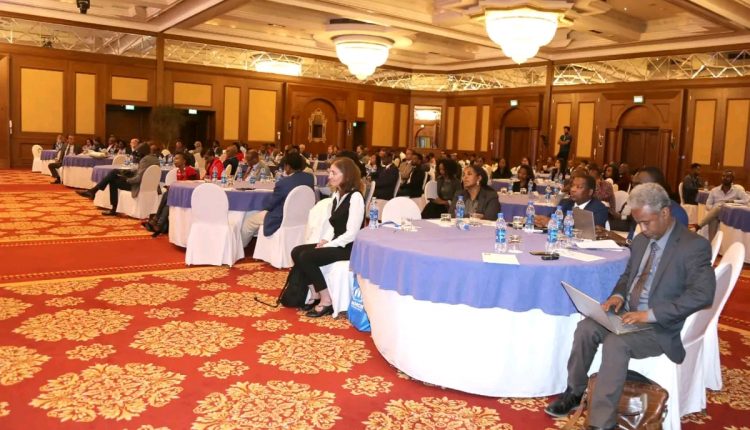Ethiopia hosts high-Level dialogue on refugee Inclusion and support for host communities
Addis Ababa, 13 June 2025 — Ethiopia reaffirmed its commitment to inclusive refugee policies and support for host communities during a high-level dialogue held in Addis Ababa.
The event was organized by the country’s Refugees and Returnees Service (RRS) in collaboration with UNHCR, the UN Refugee Agency.
The dialogue brought together senior government officials, regional representatives, UN agencies, international financial institutions, private sector leaders, academia, and civil society to reflect on progress, share experiences, and strengthen partnerships.
UN High Commissioner for Refugees, Mr. Filippo Grandi, was among the key participants.
The high-level forum highlighted Ethiopia’s leadership in aligning national policies with the Global Compact on Refugees and its pledges at the Global Refugee Forum.
It emphasized inclusive, community-driven solutions and the central role of refugees and host communities in shaping long-term responses.
Ethiopia’s legal framework—particularly the Refugee Proclamation No. 1110/2019—allows refugees to work, start businesses, access financial services, and receive digital identification (Fayda ID). Refugees also benefit from access to education, healthcare, water and sanitation, and telecommunications.
Notably, Ethiopia has integrated refugee students into its national education system and encourages refugee participation in agriculture, especially in host regions with untapped potential. Labor Proclamation No. 1156/2019 also extends labor protections to refugees.
The country’s Homegrown Economic Reform Agenda and 10-Year Development Plan prioritize inclusive, people-centered development and recognize refugees as a key population.
Models like “Solutions from the Start,” implemented in Alemwach, Ura, and Mirqaan, reflect a shift from traditional humanitarian responses to integrated, government-led approaches.
Participants underscored the need for continued investment, system strengthening, and coordinated efforts to close service gaps and build resilient, inclusive communities.

